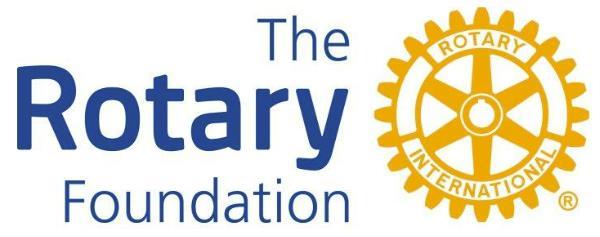
3 minute read
FEBRUARY FOCUS on PEACE AND CONFLICT PREVENTION / RESOLUTION through THE ROTARY FOUNDATION

Peace and Conflict Prevention/Resolution
Advertisement
Today, over 70 million people are displaced as a result of conflict, violence, persecution, and human rights violations. Half of them are children.
We refuse to accept conflict as a way of life. Rotary projects provide training that fosters understanding and provides communities with the skills to resolve conflicts.
Rotary creates environments of peace
As a humanitarian organization, peace is a cornerstone of our mission. We believe when people work to create peace in their communities, that change can have a global effect.
By carrying out service projects and supporting peace fellowships and scholarships, our members take action to address the underlying causes of conflict, including poverty, discrimination, ethnic tension, lack of access to education, and unequal distribution of resources.
Our commitment to peacebuilding today answers new challenges: how we can make the greatest possible impact and how we can achieve our vision of lasting change. We are approaching the concept of peace with greater cohesion and inclusivity, broadening the scope of what we mean by peacebuilding, and finding more ways for people to get involved.
Rotary creates environments where peace can happen.
Rotary’s Four Roles in Promoting Peace
Rotary and its members are:
• Practitioners: Our work fighting disease, providing clean water and sanitation, improving the health of mothers and children, supporting education, and growing local economies directly builds the optimal conditions for peaceful societies.
• Educators: Our Rotary Peace Centers have trained over 1,300 peace fellows to become effective catalysts for peace through careers in government, education, and international organizations.
• Mediators: Our members have negotiated humanitarian ceasefires in areas of conflict to allow polio vaccinators to reach children who are at risk.
• Advocates: Our members have an integral role as respected, impartial participants during peace processes and in post-conflict reconstruction. We focus on creating communities and convening groups that are connected, inclusive, and resilient.
Click here to read more.
Click here to view a short video on Peace.
Rotary members in a small town of Nova Scotia, Canada, took action to bring two families from war-torn Syria to their country, where the refugees are starting a new life.
By Ryan Hyland Produced by Andrew Chudzinski
This explosion was close – much closer than the others that had rattled the village on the outskirts of Homs, Syria, where Sultanah Alchehade lived with her four young children. This one hit the school next door, blasting out one of the walls of their house.
Alchehade grabbed the children and ran into the night and the choking smoke and dust. A neighbor helped her carry her three-year-old twin boys, Mounzer and Kaiss; another drove the pickup truck they all clambered into. Over the next several days, as bombs continued to fall, the family – including daughters Kawthar, age six, and Roukia, a baby – took refuge in a nearby forest, sleeping under the trees as Sultanah tried to figure out their next move.
In neighboring Lebanon, Sultanah’s husband, Mazen, frantically tried to contact his wife. For years, Mazen had shuttled back and forth across the border every few weeks to do construction work on high-rise buildings in Beirut. While the jobs provided an income for his family, he says, the separation was hard. But their situation had just gotten much harder.
With the Syrian civil war now engulfing his village, Mazen couldn’t return. And it would be four months before his wife and children could cross into Lebanon.
Eventually, the family was reunited. They were alive. But they were refugees, seeking asylum in any country that would take them, hoping to get far away from the violence that had driven them, along with millions of other Syrians, into foreign lands.
The Alchehade family registered with the United Nations High Commissioner for Refugees (UNHCR), the agency responsible for resettling Syrian refugees, and waited. They were still in Lebanon nearly three years later

Meanwhile, 8,000 kilometers away, Rotarians in the small town of Amherst, Nova Scotia, were watching images of Syrian refugees on television and looking for ways to help.

Click here to read the rest of this article.
• Click the photo below left to view the video of this Syrian family’s journey to Canada (Nova Scotia).
• Click the photo below right to view their story a little more about their journey.










